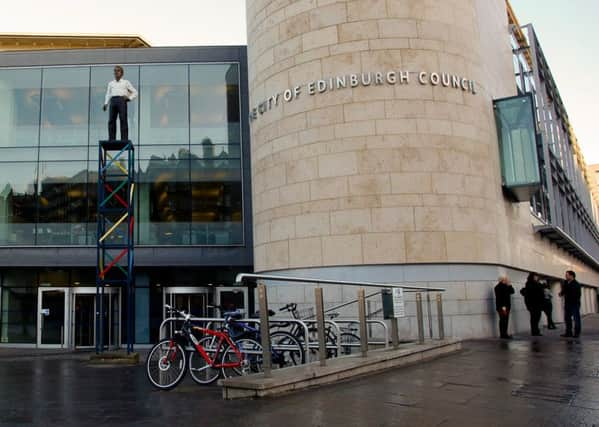Leader: Ministers can’t dodge cuts flak for long


Indeed, it is clear that local government has borne the brunt of public spending cuts, affecting not just the jobs of council workers, but also the public services they supply. Unison, the council workers’ main trade union, reckons that some 34,000 jobs have gone from Scottish local government since the financial crash in 2008-9. Still more cuts are to come.
CONNECT WITH THE SCOTSMAN
• Subscribe to our daily newsletter (requires registration) and get the latest news, sport and business headlines delivered to your inbox every morning
Advertisement
Hide AdAdvertisement
Hide AdWho is to blame? Westminster, and the cuts it has made, says the Scottish Government. That is true, but only up to a point, the point being that the financial crash and subsequent recession made the spending levels of 2007 unsustainable.
With tax revenues going down and spending on borrowing going up, UK public spending had to be cut and Scotland had to take its share of that. But at the same time, the Scottish Government has been cutting one of the two big taxes under its control. The freeze on council tax amounts to a real terms cut in councils’ direct revenue.
The Scottish Government also says it has fully compensated councils for the income they have had to forego in the council tax freeze by increasing the grants that make up about 80 per cent of what councils get to spend. Actually, if you add in the frozen council tax revenue, take inflation into account, what you end up with is real cuts in council spending power.
This reduced income has had to accommodate the meagre increases in council workers’ pay, the need to increase women workers’ pay to match that of their male counterparts, and increased demand for services caused by the recession-induced rise in unemployment and falling real incomes in the populations served by councils. So cuts in services and jobs are all but inevitable. The council tax freeze is an undoubted benefit to many folk, but whether that outweighs the disbenefit of reduced services on which the poorest depend, much more so than the better off middle-classes who also enjoy the council tax freeze, is highly questionable.
Put in the broader context of all Scottish public spending, it is clear that placing the bulk of the burden of spending cuts on local government has been a deliberate policy choice of the Scottish Government.
It puts Scottish ministers in the politically luxurious position of being able to shrug off the blame both to Westminster and elected councillors, who the public see as failing to do their job of delivering services.
The strategy has worked well for the SNP so far, but whether it will survive the heat of next year’s Holyrood election campaign, with an re-energised opposition, remains to be seen.
We continue to remember them
Many and poignant were the centenary commemorations during 2014 of the first months of World War I. They ranged from documentaries tracing the origins of the dreadful conflict to many markings of the millions of lives it cost, not least the extraordinary sight of the ceramic poppies filling the moat of the Tower of London, such an emotionally impressive spectacle that many who viewed it were moved to tears.
Advertisement
Hide AdAdvertisement
Hide AdThis year will be little different, though the emphasis will shift to more specific events. Those to be commemorated in Scotland include a reminder of why this was a world, and not just a European war – the centenary of the arrival of the 52nd (Lowland) Infantry Division on the Turkish peninsula of Gallipoli, joining Australian and New Zealand troops in a doomed bid to open a southern front against the Axis forces.
There is also the first of many commemorations of battles on the Western Front, the Battle of Loos, in which 30,000 Scottish soldiers, many from the city of Dundee, were involved. And perhaps most mournful of all, the marking of Britain’s worst rail disaster, in which at least 214 men of the Royal Scots, many from Leith, died in a three-train crash at Gretna Green, never reaching the front.
This disaster underlines that the Great War was not just about battles in faraway fields, but reached into and touched with tragedy every community in the land. For the four remaining centenary years there will be many more such commemorations. It is only right – Scotland needs to honour the sacrifice made four generations ago by so many young men and women to achieve the freedoms of many more.
SCOTSMAN TABLET AND IPHONE APPS